Australian war crime inquiry: Defence Chief reveals 39 ‘unlawful killings’
Defence Chief Angus Campbell has revealed how Australian Special Forces soldiers were allegedly involved in the unlawful killing of 39 people, including Afghan youths.
National
Don't miss out on the headlines from National. Followed categories will be added to My News.
Nineteen current or former members of Australia’s Special Forces will be referred to the police after a report found “credible information’’ our troops were involved in up to 39 unlawful killings including 23 murders.
A bombshell war crimes report released in Canberra today has revealed the shocking extent of misconduct alleged to have been carried out by some Australian Special Forces soldiers in Afghanistan.
It found “credible information’’ that Special Forces were involved in 39 unlawful killings between 2005 and 2016.
Defence Minister Linda Reynolds said in a statement that the report was “crucial to maintaining the highest standards of our military”.
The report found junior soldiers were ordered to kill Afghani prisoners in order to “blood’’ them.
It also found soldiers then placed “throwdown” weapons or other military equipment next to the bodies of the deceased to falsely represent them as having posed a military threat.
The report by the Inspector-General of the Australian Defence Force James Gaynor found “credible information of 23 incidents in which one or more non-combatants or persons hors-de-combat (no longer in combat) were unlawfully killed by, or at, the direction of members of the Special Operations Task Force Group.’’
He said if a jury accepted the circumstances in which the killings occurred, they would constitute “the war crime of murder.’’
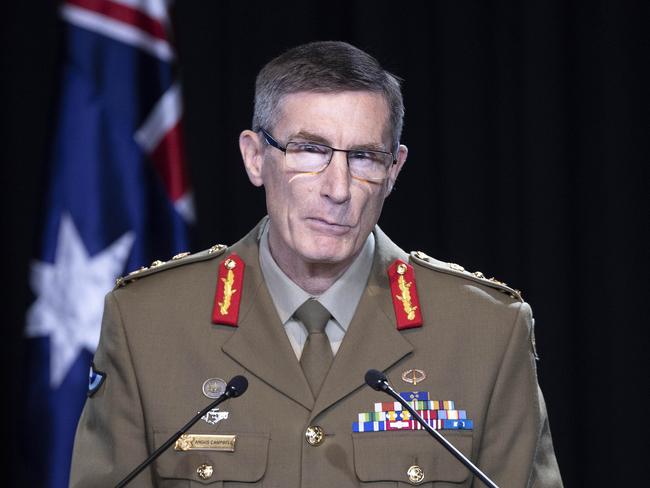
“And a further two incidents in which a non-combatants or persons hors-de-combat was mistreated in circumstances which, if so accepted, would be the war crime of cruel treatment. Some of these incidents involved a single victim, and some multiple victims.’’
The report also found there was competition between some patrols “to outscore other patrols in the number of enemy killed in action.’’
And while no specific occasions were identified, the report found the use of dogs to inflict injuries on Afghani people was “likely to have happened.’’
Mr Gaynor recommended the Chief of the Defence Force General Angus Campbell refer 36 matters to the Australian Federal Police for investigation. This related to 23 incidents and involved a total of 19 individuals.
“The nature and extent of the misconduct allegedly committed by ADF members on operations in Afghanistan is very confronting,’’ Mr Gaynor’s report found.
“The report discloses allegations of 39 unlawful killings by or involving ADF members. The report also discloses separate allegations that ADF members cruelly treated persons under their control. None of these alleged crimes were committed during the heat of battle. The alleged victims were non-combatants or no longer combatants.’’
Mr Gaynor said the inquiry was established to address the question of whether there was substance to rumours Special Forces had breached the Law of Armed Conflict in Afghanistan.
“The short and sad answer to that question is that there is substance to those rumours,’’ he said.
A further 28 incidents investigated were not substantiated, and another 11 inquiries were discontinued at an early stage.
However, 25 current or former ADF personnel were allegedly involved – some of them on multiple occasions – in the 39 unlawful killings and two cruel treatment cases.
“None of these incidents are disputable decisions made under pressure in the heat of battle,’’ the report found.
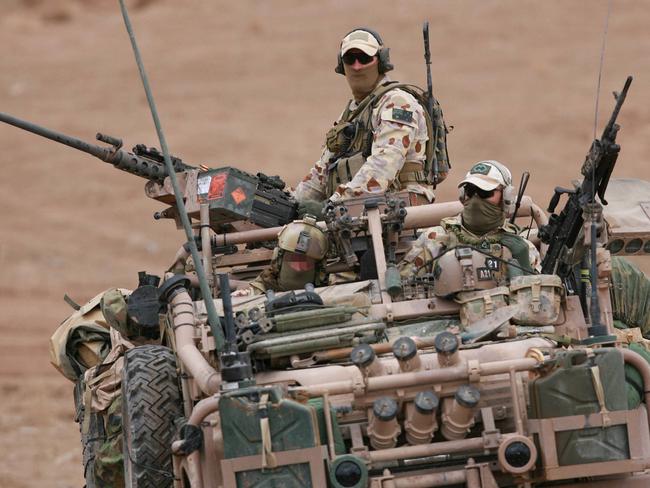
“The cases in which it has been found that there is credible information of a war crime are ones in which it was or should have been plain at the person killed was a non-combatant or hors-de-combatant.’’
The inquiry also found there was credible information that some member of the Special Operation Task Group carried ‘throwdowns’ – foreign weapons or equipment such as pistols and small radios, – to be placed with the body of the dead to portray them as ‘enemy killed in action’ for the purposes of site exploitation photography and falsely portray them as a legitimate target.
“In (redacted) different Special Operations Task Group rotations, the inquiry has found there is credible information that junior soldiers were required by their patrol commanders to shoot a prisoner, in order to achieve the soldier’s first kill in a practice that was known as blooding,’’ the report found.
“ … Typically the patrol commander would take a person under control and the junior member, who would then be directed to kill the person under control. “Throwndowns’ would be placed with the body and a ‘cover story’ was created for the purposes of operational reporting and to deflect scrutiny. This was reinforced with a code of silence.’’
The report cleared ADF high command of involvement or knowledge of the apparent war crimes, saying: “the criminal behaviour of a few was commenced, committed and concealed at their patrol commander level, that is, as corporal or sergeant level.
“But for a small number of patrol commanders and their protégés, it would not have been thought of, it would not have begun, it would not have continued, and it would have been discovered.
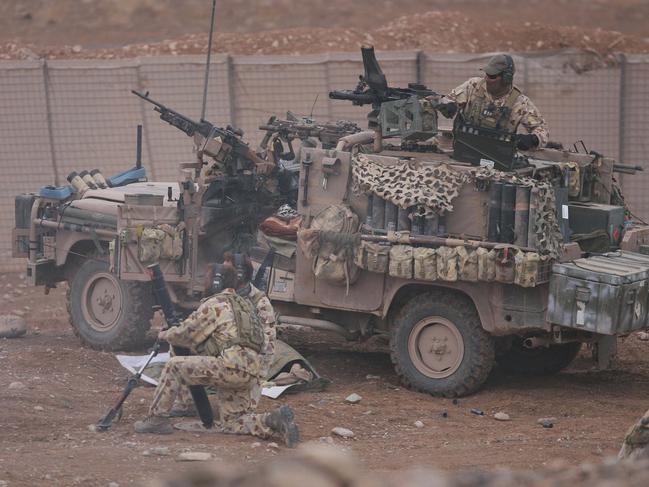
“Their motivation cannot be known with certainty but it appear to include elements of an intention to ‘clear’ the battlefield of people believed to be insurgents, regardless of Law of Armed Conflict, to ‘blood’ new members of the patrol and troop, and to outscore other patrols in the number of enemy killed in action achieved, superimposed on the personal psyche of the relevant patrol commander.’’
The inquiry recommended administrative action be taken against those who remained in the ADF.
It also called for compensation to be made to the Afghan families of those killed. “This will be an important step in rehabilitating Australia’s international reputation, in particular with Afghanistan, and it is simply the right thing to do.’’
Mr Gaynor went on to say: “What this report discloses is disgraceful and a profound betrayal of the Australian Defence Force’s professional standards and expectations.’’
It recommended stripping the Meritorious Unit Citation, and called for a review of distinguished service medals awarded to individuals and to some commanders.
The inquiry was carried out by NSW judge Paul Brereton for The Inspector-General of the Australian Defence Force (IGADF).
AUSTRALIANS ALLEGEDLY KILLED ADOLESCENT AFGHANS
General Campbell said the “warrior culture” uncovered in the report “speaks to a slow deviation from normal and good culture in a military environment”.
“Instead of seeking to serve others, you seek to serve yourself and to do so in a manner that creates power and authority and prestige,” he said.
“It is destructive because you are no longer looking at the mission that we are all there to work together to achieve.
“It must be stamped out. It is absolutely antithetical not just to special operations, but to professional military forces and absolutely to the Australian Defence Force.”
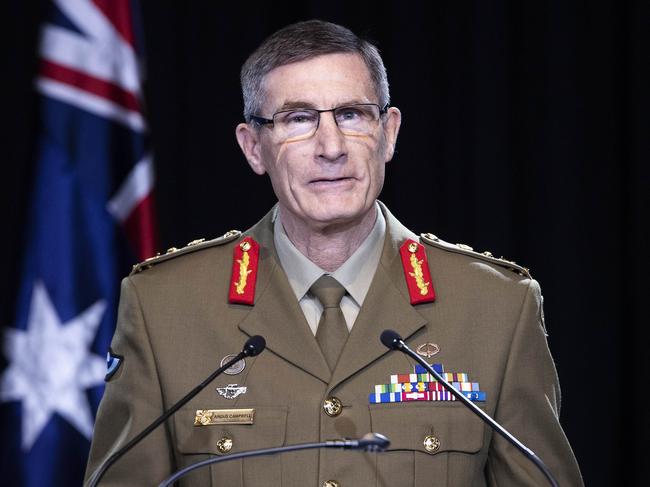
Speaking on whistleblowers, General Campbell said he “really appreciates what they have done”.
“I think that they deserve praise and acknowledgment. It was a very brave thing for them to do because in the climate and culture I have described, they would have been very concerned (about) doing so,” he said.
He said he didn’t “think this is just about special forces and Special Operations Command.”
“If the entire Australian Defence Force does not learn from it, and strengthen all of the aspects of areas of our operational capability that I have described, we are not preparing ourselves to make sure this doesn’t happen again.”
He said the report revealed allegations of Australians killing adolescent Afghan men.
“I would never have conceived an Australian would be doing this in the modern era,” he said.
“That is one of the most damaging aspects of this report ... and it does undermine the Defence Force’s moral authority.”
He said he hoped the report gave “many people, and I hope many of our international counterparts, comfort that we are a nation that stands up when something has gone wrong and deals with it.”
“That is exactly what I intend to be part of. We are going to deal with it,” he said.
He said it is alleged that “some patrols took the law into their own hands, rules were broken, stories concocted, lies told and prisoners killed.”
“Once that rule was broken, so too, for some, was any further restraint,” he said.
ADF ‘CUT CORNERS’, ‘TOXIC COMPETITIVENESS EMERGED’
The report found a “warrior culture” was fostered within the ADF, based on “a misplaced focus on prestige, status and power”.
“It turned away from the regiment’s heritage of military excellence fused with the quiet humility of service,” he said.
“The report notes that the distorted culture was embraced and amplified by some experienced, charismatic and influential non-commissioned officers and their proteges, who sought to fuse military excellence with ego, elitism and entitlement.”
The report found “cutting corners, ignoring and bending rules was normalised”.
“What also emerged was a toxic competitiveness between the Special Air Service Regiment end of the second commando regiment,” General Campbell said.
“Not correcting this culture as it developed was a failure of unit and higher command.”
The report found credible information to substantiate 23 incidents of alleged unlawful killing of 39 people by 25 Australian Special Forces personnel.
The prisoners alleged to have been killed were farmers and other civilians.
These included instances where troops were urged to shoot their first prisoner “to achieve that soldier’s first kill in an appalling practice known as blooding,” he said.
General Campbell said the “the allegations contained in this report are a tragic reminder” of a need to uphold standards even in the most trying circumstances.
“Defence, senior leadership are committed to sustaining and promoting good culture based on defence values and behaviours,” he said.
“We have no tolerance for anything else and we will strengthen and drive ethical leadership training across the force.”
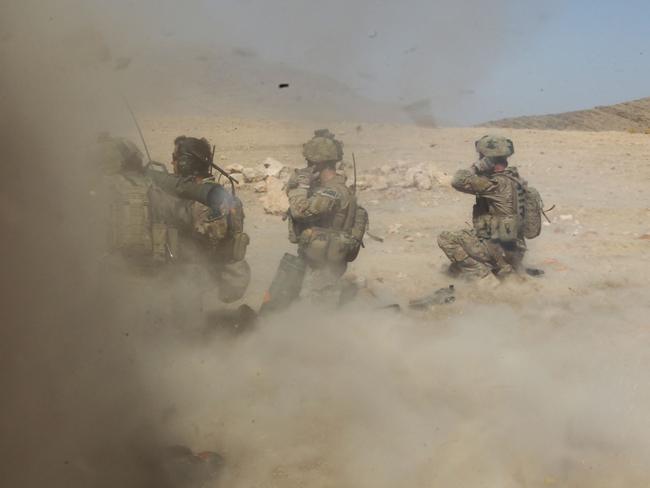
General Campbell said he would write to the Governor-General requesting he revoke meritorious unit citations for special operations task groups who served in Afghanistan between 2007 and 2013.
“The report includes some very recent lines of inquiry, only partially considered by Justice Brereton’s team,” he revealed.
“If anyone has any new or additional information, I strongly encourage them to bring it to the attention of the office of the special investigator, once established.”
General Campbell said individuals alleged to have committed criminal conduct would be referred to the office of the special investigator.
Individuals alleged to be negligent in the performance of the duty will be managed through “administrative and disciplinary processes”.
While the revelations “do not represent the whole” of the service, it was nevertheless “an important but difficult step forward for the Australian Defence Force and our people”.
“When the rumours were first raised with me late in 2015, I had the sense that there was something here,” he said.
“But I never expected to read some of the material that I have reviewed over the last two weeks.
“There is an enormous amount of effort that has gone on now for five years, and will continue at scale.”
On the futures of those at command-level involved in alleged misconduct, General Campbell said he was “leaving all options on the table and I want to work through the issue, case-by-case”.
‘THESE INCIDENTS ARE A DISGRACE’: GENERAL CAMPBELL
General Campbell was a commander in the Middle East during part of the period covered in the report.
“I think there are many, many people at all sorts of levels across the defence force involved in operations in Afghanistan or in support of those operations who do wonder what didn’t they see, what did they walk past, what did they not appreciate they could have done to prevent this?” he said.
“I think it will carry in the consciousness of perhaps a generation. I think that is something that we all need to deal with.”
He said he was “sincerely sorry” to the families of Afghanis allegedly unlawfully killed by Australians.
“I can imagine the pain, the suffering and the uncertainty that loss has caused,” he said.
“My sincere apologies to them and a desire to find a way to make recompense.”

He confirmed the Special Air Service squadron would be struck off. The squadron would be “adjusted ... (and) re-raised” with a different title.
“These actions deal with a collective accountability that will not be forgotten,” he said.
General Campbell slammed a culture of intimidating whistleblowers.
“The incidents are a disgrace and discredit to all involved,” he said.
“We can work energetically on the culture, but that requires individuals to embrace it.
“I would just say to everybody and anybody if you have a concern, raise it.
“We are determined to learn from the past and make sure that someone who does speak up doesn’t suffer the experience of others before them.”
He said Afghan authorities had been “incredibly gracious”.
“(They) expressed sorrow for the loss and an appreciation that we would engage with Afghanistan,” he said.
“I must say I was humbled and deeply appreciative of the manner in which (they) received this news.”
SAS’ ISOLATION ‘MAY HAVE CONTRIBUTED TO ALLEGED MISCONDUCT’
General Campbell confirmed one incident, heavily redacted in the report, was “utterly disgraceful”.
“It is right that it needs legally to be redacted. In time, in the time of history to be written, it is shameful,” he said.
He confirmed he had already begun engaging with international counterparts.
“It is something that can have an effect on international relationships between militaries and indeed between nations if you don’t deal with it properly,” he said.
When asked about Victoria Cross recipient Ben Roberts-Smith, he said he would not speak about individuals.
General Campbell denied the report let higher-ups “off the hook”.
He said the report found “no indication of knowledge or intent to contribute to alleged unlawful behaviours” among soldiers ranked between lieutenant and lieutenant-general.
But he conceded “there is a responsibility to know, to be curious, to understand what is going on in your organisation”.
On whistleblowers facing jail time, General Campbell said he couldn’t speak to matters before the courts.
“I understand your concern and I appreciate that many here will speak to that issue. But I am just not able to talk to it,” he said.
He said the isolation of the SAS within the ADF’s structure “may have been an element” contributing to the alleged misconduct.
He said work has been ongoing to ensure no part of the ADF operates in isolation.
DEFENCE CHIEF: ‘MOST SERIOUS BREACHES’
Defence Chief General Campbell said Australian defence forces committed the “most serious breaches of military conduct and professional values”, after the release of the bombshell report into war crimes in Afghanistan.
“The unlawful killing of civilians and prisoners is never acceptable,” he said.
“It’s my duty to set things right.”
General Campbell apologised to the people of Afghanistan for the defence force’s conduct.
“To the people of Afghanistan on behalf of the ADF, I sincerely and unreservedly apologise,” he said.
“(The) behaviour profoundly disrespected the trust placed in us by the Afghan people who had asked us to their country to help them.
“It would have devastated the lives of Afghan families and communities, causing immeasurable pain and suffering.
“And it would have put in jeopardy our mission and the safety of our Afghan and coalition partners.”
The report found none of the alleged unlawful killings happened “in the heat of battle”, General Campbell said.
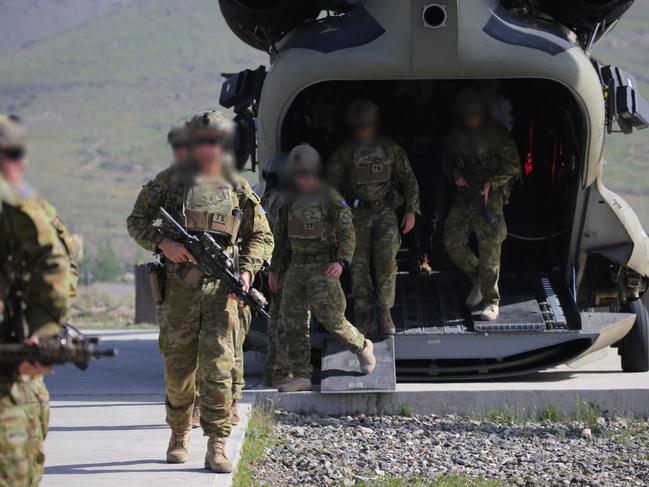
“None were alleged to have occurred in circumstances in which the intent of the perpetrator was unclear, confused or mistaken,” he said.
“And every person spoken to by the inquiry thoroughly understood the law of armed conflict and the rules of engagement under which they operated.
“These findings allege the most serious breaches of military conduct and professional values.”
Ahead of the release of an inspector General report into alleged war crimes, the Prime Minister rang his Afghan counterpart President Ashraf Ghani to discuss the war crimes report.
It is understood Mr Morrison told the Afghanistan leader the report contained some disturbing allegations and the Australian Government was taking those allegations very seriously.
Mr Morrison explained report would be passed to an Office of the Special Investigator to investigate any criminal allegations, so they would be dealt with according to Australian law.
In response, President Ghani appreciated the direct contact, noted the many Australians who had served with distinction in Afghanistan and said he was counting on Australia’s justice system to follow up on these matters.
‘PROCESS CONTINUES TO BE EXTREMELY CHALLENGING’: REYNOLDS
Defence Minister Linda Reynolds said “accountability will be the cornerstone of Defence’s response to the Inquiry report.
“This is crucial to maintaining the highest standards Australians expect of our military, reassuring confidence and trust, and learning from grave failings,” Ms Reynolds said.
“To ensure thorough oversight of the Defence response to the Inquiry, last week I established the Afghanistan Inquiry Implementation Oversight Panel, which will report directly and regularly to me.
“This panel, led by former Inspector General of the Intelligence and Security, Dr Vivienne Thom AM, will provide further assurance to the Government and the Australian people of Defence accountability.”
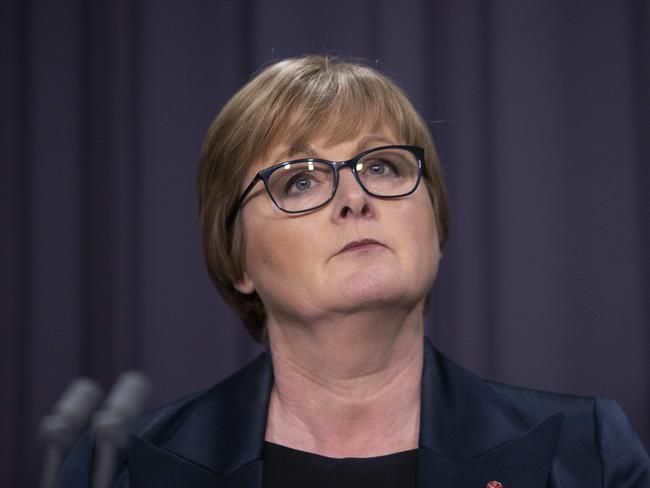
Ms Reynolds said the “should not case a shadow” on the “vast majority” ADF personell who did the right thing.
“I am profoundly conscious this process continues to be extremely challenging and distressing for many individuals and families impacted by the Inquiry,” she said.
“Defence will keep working hard to make sure people get the right support when they need it. This is the Government’s highest priority.
“I strongly encourage current and former serving ADF members and their families to reach out and seek the help they need.”
HELP FOR THOSE DISTRESSED BY FINDINGS
Mental health experts acknowledge current and former members of the defence force may be distressed by the release of the Brereton inquiry findings and have asked them to seek help.
“Many of you who belong to the Australian defence family may have your sense of identity and values challenged as a direct consequence of this report,” Christine Morgan, CEO National Mental Health Commission said.
“It is very understandable for you to feel challenged by this and the public discussion that is will occur. We sincerely urge you to support each other and to seek professional help if you are feeling challenged.”
Minister for Veterans’ Affairs Darren Chester acknowledges the coming months will be a difficult time for members of the defence forces.
“But I want to stress that from my personal experience, Australians can have confidence in the men and women who put on the uniform and serve our nation in conflicts, peace keeping missions, humanitarian aid and disaster relief operations, and maintain national security in an ever-changing world,” he said on social media.
“There will be some dark days ahead for our military, and allegations that will not sit comfortably on the broad shoulders of the majority of men and women I have spent time with over the past 10 years,” he said.
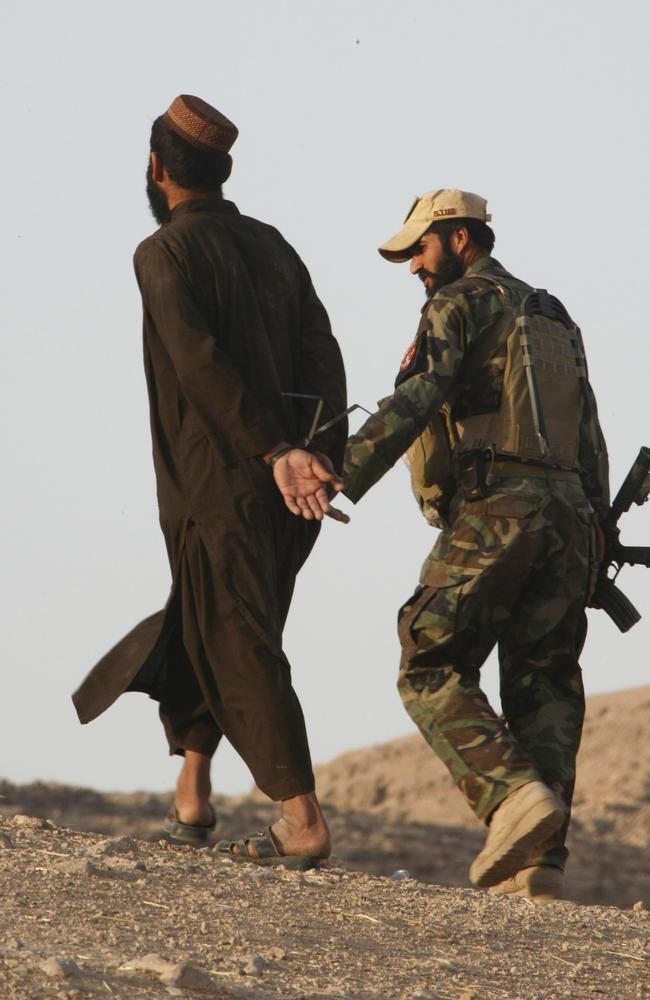
“We mustn’t allow the alleged activities of a handful of people diminish the reputation and the service records of thousands. Their qualities of loyalty, resilience, teamwork, leadership, personal integrity, sacrifice and respect for themselves and others, should not be in question,” he said.
Help is available from a range of services.
Soldier On provides in-house, evidence-based psychology treatments to defence personnel, veterans, and their families. It does not provide crisis support but can be contacted on 1300 620 380.
Open Arms provides mental health care to both serving personnel and veterans and served 30,000 clients in 2019–20.
It is available 24/7, 365 days a year on 1800 011 046.
Crisis support from Lifeline is available on 131114
Alternatively, serving personnel can access a GP through the usual on base medical services and then get referred for psychological support funded by the ADF, the Australian Medical Association advises.
They can also use Medicare to see a GP and access services privately.
ADF members and their families can contact the 24/7 Defence Family Helpline on 1800 624 608 for advice, support, and connection with their local community.
The Helpline is staffed by qualified human services professionals, including social workers and psychologists.
Further support for ADF members and their families is available by contacting the local Garrison Health Centre or IMSICK on 1800 467 425, ADF All Hours Support Line on 1800 628 036, and Defence Employee Assistance Program (including the Reserve Assistance Program) on 1300 687 327.
— with Sue Dunlevy, Clare Armstrong
MORE NEWS
20 Aussie soldiers in the line of fire
Don’t condemn all Aussie soldiers for sins of a few
Australia must take strong action against rogue soldiers
What Australia’s military must ask
Bombshell report: What you didn’t get to see
War hero’s army squadron disbanded
Originally published as Australian war crime inquiry: Defence Chief reveals 39 ‘unlawful killings’


